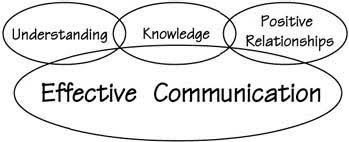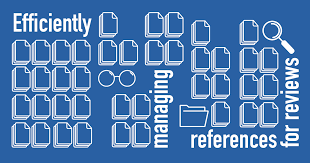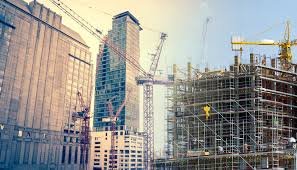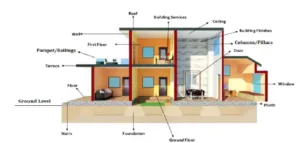How to Choose the Right Construction Partner for Your Real Estate Project
How to Choose the Right Construction Partner for Your Real Estate Project
Choosing the right construction partner is one of the most critical decisions you will make for your real estate project. Whether you are building a commercial complex, residential development, or custom home, the success of your project largely depends on the capabilities, reliability, and expertise of the construction company you select. A strong partnership can ensure that your project is completed on time, within budget, and to the highest quality standards. But how do you make the right choice? Here are the key factors to consider when selecting the right construction partner for your real estate project.
1. Define Your Project Needs and Goals

Before beginning the search for a construction partner, it’s important to clearly define the scope, goals, and specific requirements of your project. Consider the following questions:
- What is the scale of the project (small, medium, or large)?
- Is it a commercial, residential, or mixed-use development?
- What is your timeline and budget?
- Do you need specialized services, such as sustainable building practices or unique architectural design?
Having a clear understanding of your project needs will help you find a construction company that has the relevant experience and expertise. It will also ensure that the contractor can meet your specific expectations in terms of quality, timelines, and budget.
2. Research and Evaluate Experience

Experience is one of the most important factors when choosing a construction partner. A company with extensive experience in projects similar to yours is more likely to anticipate potential challenges and manage them effectively. When researching potential partners, consider the following:
- Project Portfolio: Review their previous work and look for projects that are similar in scale, type, and complexity to yours. Pay attention to the quality of their completed projects, as this will give you an indication of their craftsmanship and attention to detail.
- Specializations: Some construction companies specialize in specific sectors, such as commercial buildings, luxury residential homes, or industrial facilities. Make sure the contractor you choose has relevant expertise in your type of project.
- Track Record: Look for a partner with a solid track record of delivering projects on time and within budget. Request references from past clients and ask about their experience working with the company.
3. Assess Financial Stability

Construction projects are often long-term commitments that require financial security. The last thing you want is for your construction partner to face financial difficulties midway through your project. To ensure you’re working with a financially stable company:
- Financial Health: Ask for financial statements, credit ratings, or other evidence of financial stability. A company that is financially sound will be better equipped to manage cash flow, procure materials, and avoid delays caused by budget shortfalls.
- Insurance and Bonding: Verify that the contractor has the proper insurance coverage (such as general liability, workers’ compensation, and builder’s risk insurance) and is bonded. This protects both you and the contractor in case of accidents, disputes, or financial issues during the construction process.
4. Evaluate Communication and Project Management Skills

Successful construction projects rely on clear communication and effective project management. When choosing a construction partner, you want to ensure they can communicate well and manage your project efficiently. Consider the following:
- Transparency: Does the company offer clear and transparent pricing, timelines, and work processes? A reliable contractor will be upfront about costs and potential risks and will keep you informed throughout the project.
- Project Management Capabilities: Ask about the company’s project management approach. How do they handle timelines, permits, subcontractors, and quality control? A strong project management team will ensure that your project stays on track and that any issues are addressed promptly.
- Team and Leadership: Get to know the leadership and project management team that will be assigned to your project. Their experience, leadership style, and problem-solving abilities will play a significant role in the success of your project.
5. Verify Licensing and Certifications

A professional construction company must have the necessary licenses and certifications to operate legally. Before selecting your partner:
- Licensing: Verify that the contractor is properly licensed to work in your state or municipality. Licensing ensures that they are qualified to perform the work and adhere to local building codes and regulations.
- Certifications: Check whether the contractor holds any certifications that demonstrate their commitment to high standards. For example, certifications in green building practices, such as LEED (Leadership in Energy and Environmental Design), can be important if your project emphasizes sustainability.
6. Review Safety Record

Safety is a top priority in any construction project. A company with a strong safety record demonstrates their commitment to protecting workers and minimizing accidents on site. When evaluating a construction partner, ask about:
- Safety Policies: Does the contractor have a comprehensive safety program in place? What measures do they take to ensure job site safety and compliance with OSHA (Occupational Safety and Health Administration) standards?
- Safety Record: Look at their accident rate and injury history. A contractor with a poor safety record may be more prone to accidents, leading to project delays and potential liabilities.
7. Consider Cost vs. Value

While cost is an important factor, it shouldn’t be the sole basis for your decision. Choosing the lowest bidder may result in subpar work, delays, or unexpected cost overruns. Instead of focusing only on price, look for a contractor who offers the best value for your money by considering:
- Quality of Work: High-quality materials and craftsmanship will save you money in the long run by reducing the need for repairs or replacements.
- Warranties and Guarantees: Does the contractor provide warranties on their work and materials? A company that stands behind their work is more likely to deliver a high-quality product.
- Long-Term Costs: Consider the overall cost of ownership, including maintenance, energy efficiency, and durability. Investing in quality construction up front can lead to significant savings down the road.
8. Get References and Read Reviews

Finally, one of the best ways to gauge the reliability and quality of a construction partner is by speaking with past clients and reading reviews. Don’t hesitate to ask for:
- References: Contact previous clients and ask about their experiences with the contractor. Were they satisfied with the quality of work? Did the contractor stay on schedule and within budget? How did they handle issues or changes during the project?
- Online Reviews: Check online platforms like Google, Yelp, or industry-specific websites to see what others are saying about the company. Pay attention to any recurring issues or red flags mentioned in reviews.
Conclusion
Choosing the right construction partner for your real estate project requires careful research and evaluation. By considering factors such as experience, financial stability, communication skills, safety practices, and value, you can select a partner that will help ensure the success of your project. At Carry Construction, we believe in building lasting relationships with our clients by delivering quality work, transparent communication, and exceptional project management from start to finish.











Add comment